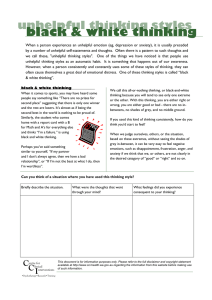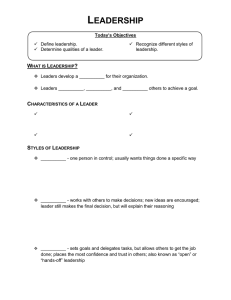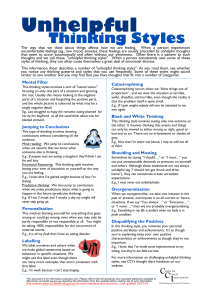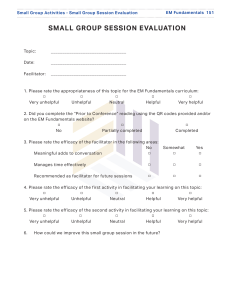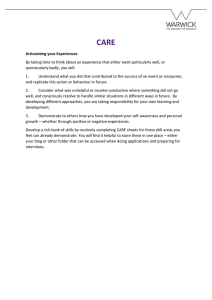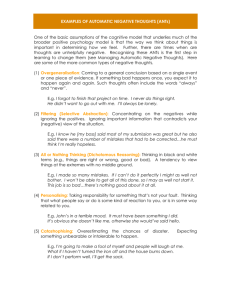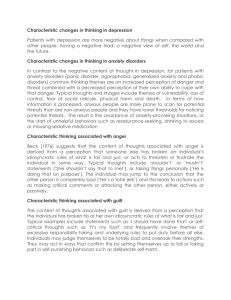thinking styles - emotional reasoning
advertisement
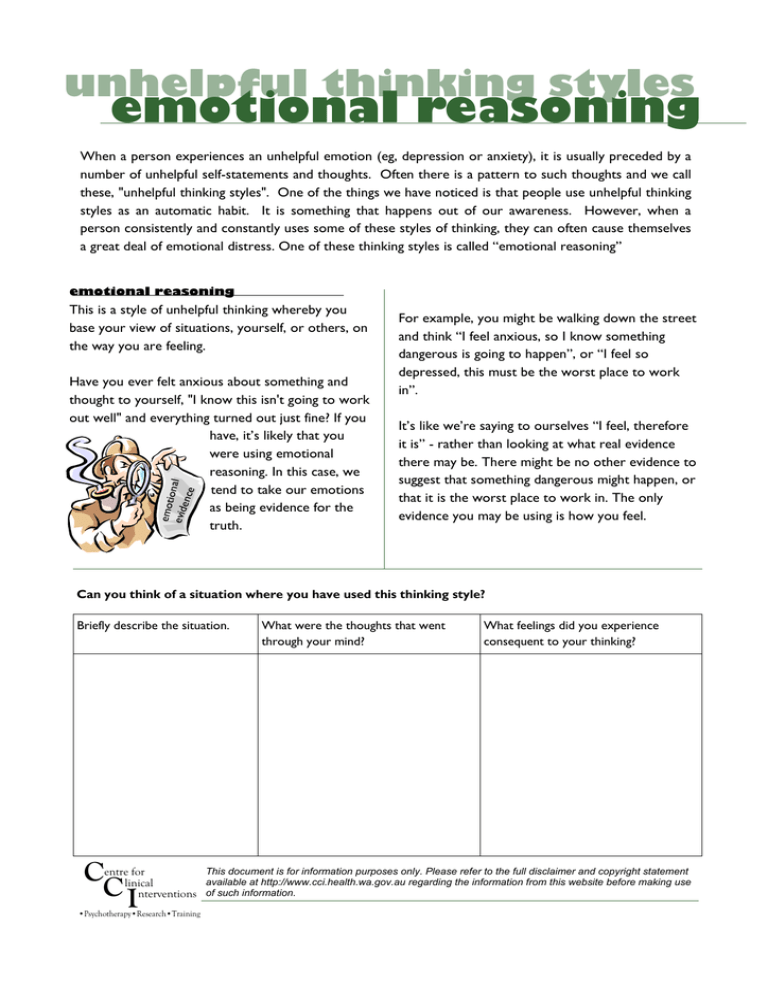
unhelpful thinking styles emotional reasoning When a person experiences an unhelpful emotion (eg, depression or anxiety), it is usually preceded by a number of unhelpful self-statements and thoughts. Often there is a pattern to such thoughts and we call these, "unhelpful thinking styles". One of the things we have noticed is that people use unhelpful thinking styles as an automatic habit. It is something that happens out of our awareness. However, when a person consistently and constantly uses some of these styles of thinking, they can often cause themselves a great deal of emotional distress. One of these thinking styles is called “emotional reasoning” emotional reasoning This is a style of unhelpful thinking whereby you base your view of situations, yourself, or others, on the way you are feeling. emot io evid nal ence Have you ever felt anxious about something and thought to yourself, "I know this isn't going to work out well" and everything turned out just fine? If you have, it’s likely that you were using emotional reasoning. In this case, we tend to take our emotions as being evidence for the truth. For example, you might be walking down the street and think “I feel anxious, so I know something dangerous is going to happen”, or “I feel so depressed, this must be the worst place to work in”. It’s like we’re saying to ourselves “I feel, therefore it is” - rather than looking at what real evidence there may be. There might be no other evidence to suggest that something dangerous might happen, or that it is the worst place to work in. The only evidence you may be using is how you feel. Can you think of a situation where you have used this thinking style? Briefly describe the situation. C CI What were the thoughts that went through your mind? What feelings did you experience consequent to your thinking? This document is for information purposes only. Please refer to the full disclaimer and copyright statement entre for available at http://www.cci.health.wa.gov.au regarding the information from this website before making use linical nterventions of such information. •Psychotherapy•Research•Training
